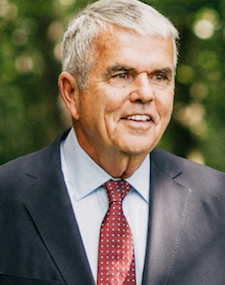By Don Keelan
If you own or work at a Vermont consulting practice that focuses on Diversity, Equity, and Inclusiveness (DEI), Climate Change, or Ethnic Affairs, you are in the right place for exponential growth.
Some of the growth comes from municipalities, companies, and nonprofits that believe their human resources and operational departments need to become more aware of what is transpiring around them.
And then, there is the Legislature’s push and, to a certain extent, existing law to have companies and State agencies provide data on what impact operating decisions will have on DEI, Climate Change, and Ethnic Affairs.

Don Keelan
For example, Bill H.120, which is working its way through the Legislature as ‘an act relating to updates to Act 250,’ contains the following:
“A permit will be granted when it has been demonstrated by the applicant that …the design of the subdivision or development reflect the principles of energy conservation and energy efficiency including reduction in of greenhouse emissions from the use of energy…(an) applicant seeking finding under this criterion shall provide evidence by certification…’ and ‘a permit will be granted for the development or subdivision when it has been demonstrated that…no group of people or community will bear a disproportionate share of the negative environmental consequences of the development or subdivision (pages 26-27).”
Not many developers have the in-house expertise to address the proposed criteria. They will have to go outside their organization and obtain unbiased empirical evidence to satisfy Act 250 Regional Commissions as they are required with the Act’s ten other criteria.
Another example of operating decision impact is included in last year’s Global Warming Solutions Act which states that State agencies “shall consider, any increase or decrease in greenhouse gas emissions in their decision-making procedures concerning the purchase and use of equipment and goods…(and) the assignment of personnel (page 26).” Will this mean when an employee is reassigned from Montpelier to Burlington that an impact statement on greenhouse emissions will be required? The question then becomes who will write the statement?
The source of this additional work will go to the consulting cottage industry from non-state entities who will be required to provide information, while others will have to develop programs/policies/training that is not currently in place.
In its January 21, 2021 edition, the “Wall Street Journal” noted, “Nasdaq is calling for all its listed companies to appoint within four years no fewer than two ‘diverse’ directors: at least one woman and one person from an underrepresented racial or ethnic group or someone who identifies as LGBTQ…failing this requirement would be obligated to explain why.”
A week later, in the same publication, the following was noted: “A billionaire hedge-fund manager (Christopher Holn) is bankrolling an unprecedented campaign to force dozens of the world’s largest companies to publish carbon-emissions reduction plans.”
Also, according to the WSJ and the Securities and Exchange Commission Acting Chair, “The information could be material, i.e., relevant to a company’s financial performance and risk—since climate presents heightened risks for marginalized communities, linking it to racial justice concerns.”
The mega-size companies can deal with the above but not smaller companies and non-profit organizations. They don’t have in-house DEI or greenhouse gas emission experts who can appropriately address the new disclosures.
It will not be long before Vermont’s municipalities, thousands of nonprofit organizations and small corporate entities will have to follow suit. They will surely need to draw on the consultants of the cottage industry that are rapidly growing in Vermont.
There may be additional business for the cottage industry firms once local banking institutions and grant providers require, in addition to the standard financial and tax reports, data on how much carbon emissions the individual homeowner or business produces and to what extent plans are in place to abate such emissions. And it becomes more complex when the companies and nonprofits must submit their plans for DEI and Ethnic Affairs.
The cottage industry will have its work cut-out, especially when its efforts are expanded to include military veterans. The 45,000 or so Vermont Veterans also deserve to be considered when evaluating inclusiveness. It is no secret; veterans are pretty much ignored in Vermont.
Don Keelan writes a bi-weekly column and lives in Arlington, Vermont.



I detect a note or well deserved sarcasm in this good piece. The question is, what do we do about the takeover of our culture by the woke left? Profit from the demise of our country as Mr. Keelan suggests, or is this the time for right thinking Vermonters, who know that “structural racism” is a perverse hoax designed to deprive us of our consitutionally protected rights, our property, our education system, and the very culture that has made Vermont “the brave little state” that leftists have now layed claim to – is this the time to push back? The left loves activism and control and the right loves to be left alone. Its well past the time we stopped minding our own business and began to get organized for the battle that lies ahead.
If the Governor, anyone in the Legislature or anyone trying to run a business or make a living in Vermont wants to know why the state has serious economic and development problems weighting down the economy, all they have to do is read H.12 and the biographies of our legislators passing these sorts of laws……..Then you’ll understand the problem……..Simple as that.